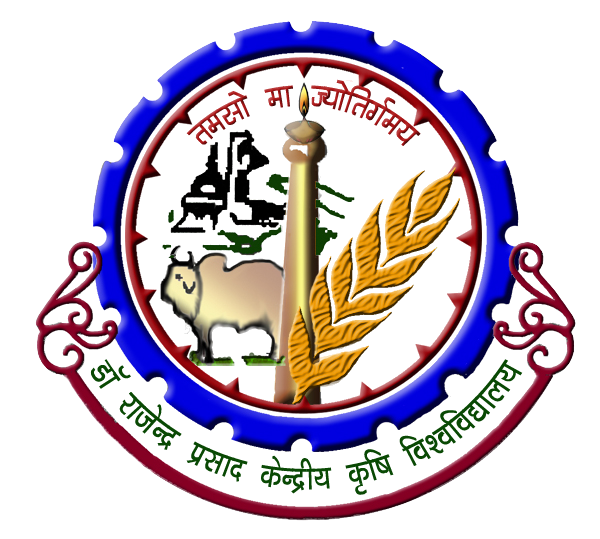Who We Are


ABOUT RPCAU
ACADEMIC
The academic set up of the university comprises of 08 colleges viz. Tirhut College of Agriculture, PG College of Agriculture, College of Agricultural Engineering and Technology, College of Community Science, College of Basic Sciences and Humanities, College of Fisheries and Pt. Deen Dayal Upadhyay College of Horticulture and Forestry, School of Agri Business & Rural Management. University offers under-graduate (UG) programme in 08 disciplines viz. Agriculture, Horticulture, Agricultural Engineering, Community Science, Fisheries, Biotechnology, Forestry and Food Technology. In addition, Master’s programme in 27 subjects and Ph.D. programme in14 subjects are also offered by the university. RPCAU is a multicampus university having three campuses, at Pusa (Samastipur), Dholi (Muzaffarpur) and Piprakothi (East Champaran), 18 KVKs (16 under its direct control and 2 under technical control) and 4 research station spread over an area of 2063 acres comprising of lakes, ponds, wetlands, farm land, and arboreal coverage supporting rich flora and fauna, having a rich biodiversity. In light of new National Education Policy, University has started eight (8) Certificate course programmes and three (3) PG Diploma courses to generate industry ready personnel at base and supervisory level. In view of the expanding influence of the University over education in agricultural sciences, the faculties and facilities have been upgraded and modernized to serve the students better. However, despite its modern outlook, the University is still preserving its legacy and to showcase it, fourteen old bungalows and some residential quarters are still maintained to display their imperial touch. The University envisions providing value-based education and not restricting itself to merely imparting technical education.
RESEARCH
On research front, the University has released 18 varieties of rice, wheat, sugarcane, coriander, millet, maize, pulse, tuber crops and mushroom through CVRC/SVRC for different agro climatic conditions. Has developed technologies for different socio-economic groups and challenged ecology (12), value addition of the agricultural produce and advancement of scientific knowledge through 32 AICRP, 03 International Projects, 4-Govt. of India funded projects, 04 Govt. of Bihar funded projects and more than 100 University funded projects. RPCAU has established many Advanced Centres for Research and Centres of Excellence to take the research challenges in niche areas/ crops, like up- gradation of Banana Research Centre at Goraul (Vaishali), Centre of Excellence/Advance Studies in Water Management, Climate Change, Food Processing, Embryo Transfer Technology, Mushroom Technology, Indigenous cattle conservation, wealth from waste, startup facilitation center to facilitate entrepreneurs to take up business activities in the areas related to agriculture and allied activities.The university has successfully conceptualised and translated the idea into revenue generation through monetization of agro waste viz. herbal gulal, mushroom products, mosquito repellent from dry turmeric leaf, textile fibre from banana pseudo stem, jaggery products and Balshakti. The University has addressed the concern of waste disposal not only in its campuses but also in the temples of Vaidyanath Dham, Deoghar (Jharkhand) and Baba Garib Nath temple, Muzaffarpur by converting the floral waste of these temples into vermicompost which not only strengthened the Swatch Bharat Abhiyan but also helps in generating revenue to the tune of Rs 16 lakhs / annum. Recently, the University has received patents for two products developed by our scientists, namely, Self-Propelled Rotary Power Paddy Weeder and Hand Cranked Improved Chakki. Highly impressed by the workflow of the waste management model of Sukhet, Hon’ble Prime Minister stressed upon the need of replicating it at every Panchayat of the country in the 80th edition of “Mann Ki Baat”.
EXTENSION
The University is making sincere efforts for ensuring food security to the masses, reducing poverty and protecting the environment through transfer of agricultural technologies among the farmers and other users. The university undertakes extension activities through the Directorate of Extension and KVKs under its control. It provides on and off campus training programmes, field level demonstrations, on farm trials, Kisan Melas, formation of farmers groups and developing seed villages etc. for practicing farmers, rural youth, extension functionaries, Govt. officials and other stake holders. The university has 16 KVKs under its direct administrative control and 2 KVKs under its technical control. Five new KVKs were established during the last five years in larger districts.
ACHIEVEMENTS
Vision
- Augmenting/Advancing professional competency for pursuing excellence in agriculture and allied education, research, and entrepreneurship with ethical values to meet the Regional, National and Global needs and offering specialized services to the farmers for decent livelihood
Mission
- Promote experiential high quality learning environment and creation of integrated approach that develops an appreciation and understanding of the socio-economic and environmental significance of soil-plant-animal-people interface.
- Shaping agricultural stakeholders into self-sustaining mode through innovative centric education, cutting edge research, entrepreneurship/ start up skill development and dissemination of appropriate agricultural technology.
- Nurture national/ global needs of sustainable food production through advance interventions of research and development.
- Making Eastern India agriculture climate resilient and mitigating pressure on agricultural land through higher productivity.
Goals
- To improve the quality of education, research, and extension by creating a sound, intellectual and hardworking manpower in agriculture and allied fields at par with the national/international institutes.
- To undertake basic, strategic, and applied research for developing technologies to enhance productivity and quality of agricultural and animal produce.
- To improve the nutritional standard and quality of life of the people through the promotion of sustainable development in agriculture sector.
- To provide an integrated outreach to meet the agricultural needs of the country with special reference to Bihar and to act as a link between the university scientists and farming community as well as allied industries.







 Users Today : 965
Users Today : 965 Total Users : 4521237
Total Users : 4521237